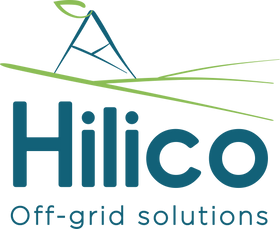

· By Moshe Belilty
Small Steps, Big Impact: The Necessity of Micro-Rainharvesting for a Sustainable World
Micro rain harvesting is a practice that has been done since the dawn of mankind. It's designed to obtain one of the most essential needs for our existence - water. Collecting rainwater is a fundamental skill that has allowed our ancestors to survive in nature for thousands of years.
However, in today's modern world, we are gradually losing touch with this age-old practice and are becoming increasingly disconnected from nature. But why does it matter? And why is rainwater harvesting more relevant than ever?
The rich, The poor, and The black market of water
The world has experienced huge population growth since the beginning of the industrial revolution. It's estimated that 70 million people are added annually around the world, most of them sitting in our existing urban spaces, with 90% of the growth occurring in developing countries.
As more and more people leave rural areas to seek better opportunities in urban centers, the number of informal settlements, also known as slums, is on the rise. In the coming decades, it's expected that the urban population in both South Asia and Sub-Saharan Africa will double, resulting in a significant increase in the number of people living in slums.
The lack of infrastructure, particularly water, can have serious consequences. One of the major issues that arises is the creation of a black market for water. With limited access to clean and safe water, individuals and communities turn to illegal or unregulated sources to meet their needs. This leads to sky-high prices and people taking advantage of those who are already struggling.
When urbanization is rapid and unplanned, a combination of high population density, poverty, and lack of infrastructure leads to a disaster.
According to the World Health Organization (WHO), around 3.4 million people die each year from water-related diseases, including diarrhea, cholera, typhoid, and other waterborne diseases.
Not only in slums - Contamination Crisis
Think about it, when was the last time you drank from a natural water source near your home without any filtration? Chances are, you probably haven't in your lifetime. Surface water sources like rivers and lakes are facing alarming levels of pollution. Our modern lifestyle continues to introduce new pollutants, such as "endocrine disruptors" and hundreds of chemical compounds, into our water sources every day. Unfortunately, many of these new contaminants are not regulated, and their effects have not been thoroughly studied. This means that the potential harm they can cause to the environment and human health is not fully understood.
Unlocking the Potential of Rainwater
Rainwater is known to be one of the purest forms of H2O found in nature, yet it doesn't always get the recognition it deserves. Rainwater is a natural, abundant, and sustainable water source that is relatively easy to access, low-cost, and doesn't require energy-intensive treatments or transportation costs.
At Hilico, we take rainwater seriously. We understand that addressing water issues requires a diverse range of solutions, but it all starts with reducing dependence on a single water source and becoming more resilient in times of need. We believe that rainwater collection, particularly micro-collection, can play an important role in providing clean water at a low cost and with no energy investment. We are dedicated to keep developing simple and scalable technologies, along with an effective business model, to make rainwater collection accessible to people of all backgrounds. We continue to invest in research and development of new tools to bring rainwater collection to the mainstream and make the process easy and accessible.
Our team has brought this ancient practice into the 21st century by utilizing the best textile, materials, and production techniques that the outdoor industry has to offer. We want to make rainwater harvesting accessible to everyone, regardless of where they live or their living situation. Whether you're a city dweller living in a building or a remote village resident, whether you live in the heart of the slums in Mumbai or in the suburbs of Seattle, Hilico wants to enable everyone to collect rainwater because it is a necessity for all of us, no matter where we live.
